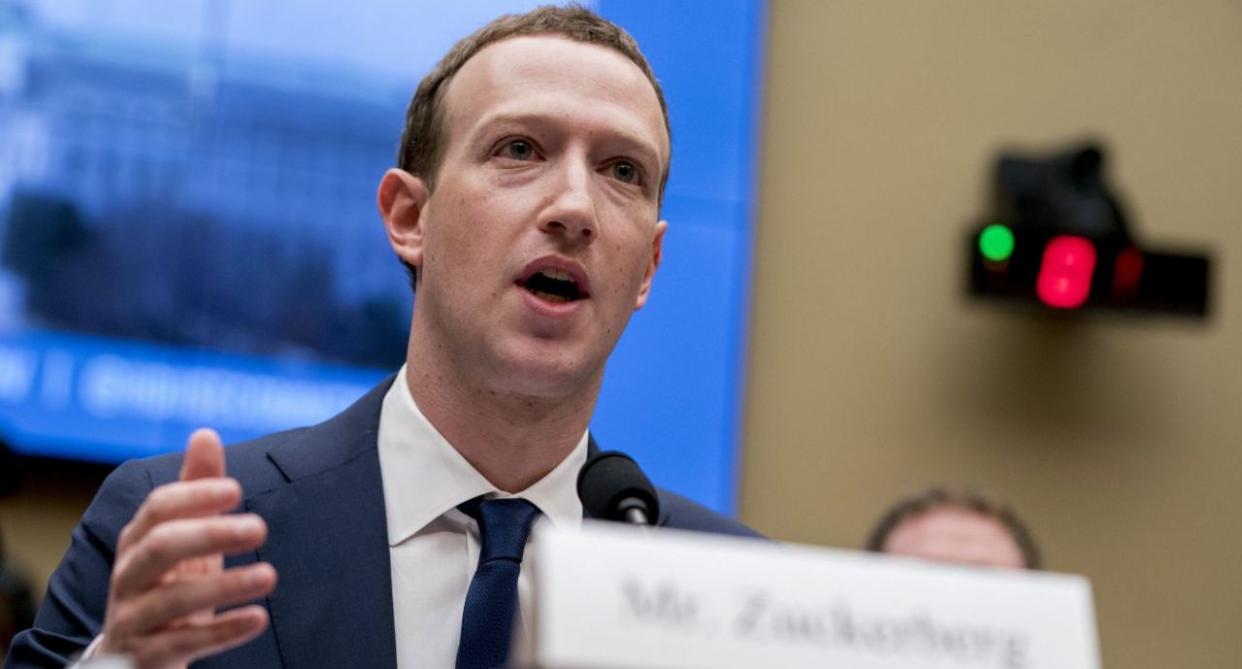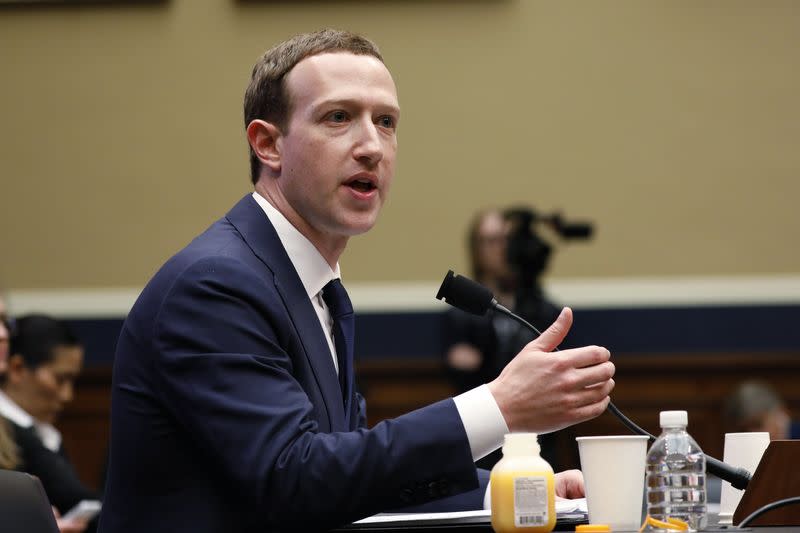Does Facebook listen to your microphone - or track you when you're logged out? The facts

It’s no secret that Facebook spies on everything that you do online with a chilling efficiency – whether you’re using apps, or browsing the web.
But does the social media giant listen to every word you say near your smartphone – and track you even if you’re logged out?
Mark Zuckerberg addressed both these questions this week as the Facebook chief faced questioning from American politicians.
Does Facebook listen to your microphone?
Lots of people claim they’ve witnessed it happening, with hundreds of anecdotes shared online about Facebook ‘hearing’ a word, then serving people adverts.
This week, Mark Zuckerberg flatly denied that Facebook listens to phone microphones to target adverts at users.

The tech giant’s chief executive this week testified before US Congress.
Senator Gary Peters said, ‘Yes or no, does Facebook use audio obtained from mobile devices to enrich personal information about users?’
‘No,’ said Zuckerberg.
People often claim that Facebook has begun to display adverts after they said something near a mobile – but Facebook has always denied this.
MOST POPULAR TODAY ON YAHOO
Bargain hunter buys car for 100 mile trip to Bristol because it’s cheaper than the train
Instagram model films final moments before private plane crashes, killing six people
Three ‘coronal holes’ appear on the sun as solar storm buffets Earth
Car ploughs into pedestrian during vigil for cyclist killed in hit-and-run
Experts suggest that these ‘coincidences’ are caused by a sort of confirmation bias known as Frequency Illusion – where you learn about something, and then start seeing it everywhere.
Rob Goldman, the company’s vice president of advertising, said in 2017, ‘I run ads product at Facebook. We don’t – and have never – used your microphone for ads. Just not true.’
Facebook said in 2016, ‘We only access your microphone if you have given our app permission and if you are actively using a specific feature that requires audio.
‘This might include recording a video or using an optional feature we introduced two years ago to include music or other audio in your status updates.’
Does Facebook track you when you are logged out?

When asked if Facebook tracked users who are logged out, Zuckerberg seemed not to want to answer the question – and in the end suggested that someone else would ‘follow up.’
Senator Roger Wicker asked, ‘There have been reports that Facebook can track user’s browsing activity even after the user has logged off the Facebook platform. Can you confirm whether or not this is true?’
Zuckerberg replied, ‘Senator, I want to make sure that I get this accurate, so it’ll probably be better to have my team follow up with you on this.’
Wicker said, ‘You don’t know this?’
Zuckerberg then replied, ‘I know that people use cookies on the Internet and that you can probably co-relate activities between sessions.
‘We do that for a number of reasons including security and measuring ads to make sure that the ad experiences are most effective, which people can of-course opt out of.
‘But I want to make sure that I’m precise with my answer so let me follow up with you on this.
In 2016, Facebook announced that it would track non-users as well as users via its online ad network – using cookies, ‘Like’ buttons and other plug-ins on third-party sites.
If you’re using Facebook, you can switch off some of this functionality.
The option (which you can find by going to the lock icon in Facebook on your PC, then to Settings, then to Ads) says, ‘Your Facebook ad preferences can be used to show you ads on apps and websites off of the Facebook Companies.’
Switching it off will mean that you don’t see ads ‘personalised’ to you on other sites.
The company said its goal is to serve relevant adverts to people who don’t use Facebook – using the data it has on its 1.7 billion users to make inferences about non-users.
This approach is known as ‘lookalike’ targeting.


